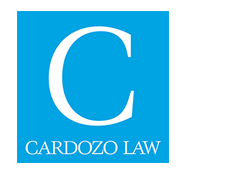Publication Date
3-2023
Journal
New York University Law Review Online
Abstract
Commentary about the Supreme Court's 2021 decision in United States v. Arthrex, Inc. has focused on the nexus between patent and administrative law. But this overlooks the decision's seismic and as-yet unappreciated implication for copyright law: Arthrex renders the Copyright Royalty Board ("CRB") unconstitutional. The CRB has suffered constitutional challenge since its 2004 inception, but these were seemingly resolved in 2011 when the D.C. Circuit held that the CRB's composition did not offend the Appointments Clause as long as Copyright Royalty Judges ("CRJs") were removable atwill. But when the Court invalidated the selection process for administrative patent judges on a similar theory in Arthrex, it also rejected the D.C. Circuit's remedy of requiring at-will removal, making the CRB unconstitutional-again. This problem is not insoluble, however, and the best available option would be to make CRJs subject to presidential appointment with Senate approval. This Essay highlights this novel insight regarding Arthrex, proposes legislative and judicial solutions to the problem of constitutionality, and reflects on the broader implications of these claims for copyright's administrative law and Appointments Clause jurisprudence.
Volume
98
First Page
1
Publisher
NYU School of Law
Keywords
copyright, patent, administrative law, Copyright Office, Copyright Royalty Board, Appointments Clause, Arthrex, Intercollegiate
Disciplines
Administrative Law | Intellectual Property Law | Judges | Law | Legislation
Recommended Citation
Saurabh Vishnubhakat & Dave Fagundes,
The Coming Copyright Judge Crisis,
98
N.Y.U. L. Rev. Online
1
(2023).
https://larc.cardozo.yu.edu/faculty-articles/673
Included in
Administrative Law Commons, Intellectual Property Law Commons, Judges Commons, Legislation Commons



